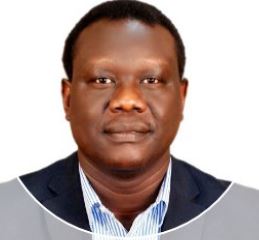BY DR AYINE NIGO (PhD/FHEA)
The scheduled date of 22 December 2024 for the elections is not feasible. However, President Salva Kiir is resolute in his decision to proceed with it. This determination underscores the fact that The President’s original motive in enlisting President Willian S. Ruto’s mediation was primarily geared towards persuading the non-signatories to partake in the elections and secure re-election.
The president is primarily focused on securing re-election to extend his term by another five years. Conversely, the first vice president/presidency and other high-ranking officials within the government are inclined towards seeking extensions to protract their current tenures considering the uncertainties surrounding their electoral prospects. This inclination is attributed to their reservations about the feasibility of winning in a legitimate election and their desire to sustain their incumbent roles for an extended duration.
Given the prevailing circumstances, it is doubtful that the government delegation in the Tumaini talks will agree to any constructive outcomes, such as reforms or the establishment of a new government. This sentiment is reinforced by the prevailing mood in Juba, where senior SPLM leaders, other opposition groups, and the South Sudan National Legislative Assembly are openly opposed to the Tumaini Initiative. On the other hand, the populace is concerned with meeting their basic needs, rather than anticipating any substantial changes arising from the Tumaini talks, the extension, or the elections.
Regrettably, it is imperative to impart the understanding to RTGoNU and the presidency that a constitution is a prerequisite for the legitimacy of an election. The absence of a constitution renders an election vulnerable to legal nullification. The Permanent Constitution-Making Process and the Constitution are foundational requirements that necessitate an inclusive approach towards addressing crucial elements such as the National Census, Mapping of Constituency Boundaries, Voter education and registration, campaign and political parties’ registrations/candidates, and the Elections.
The efforts to instigate elections and consideration for another extension appear to be calculated maneuvers aimed at pre-empting or obstructing positive outcomes, as evidenced by the Tumaini. Consequently, it is unlikely that any meaningful progress will emerge from this course of action. We argue that the opposition groups involved in the negotiations must proactively update the public on the ongoing developments, their agenda, negotiation specifics, and the comprehensive national strategy.
We anticipate the Tumaini Consensus will introduce a new approach to the country, distinct from the R-ARCSS or Extension.
Dr Ayine Nigo is an author and lecturer at the University of Westminster, London, United Kingdom. He can be reached via nigoayine@gmail.com
The views expressed in ‘opinion’ articles published by Radio Tamazuj are solely those of the writer. The veracity of any claims made is the author’s responsibility, not Radio Tamazuj’s.




